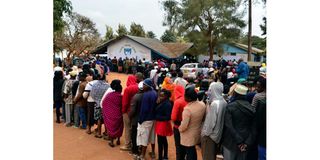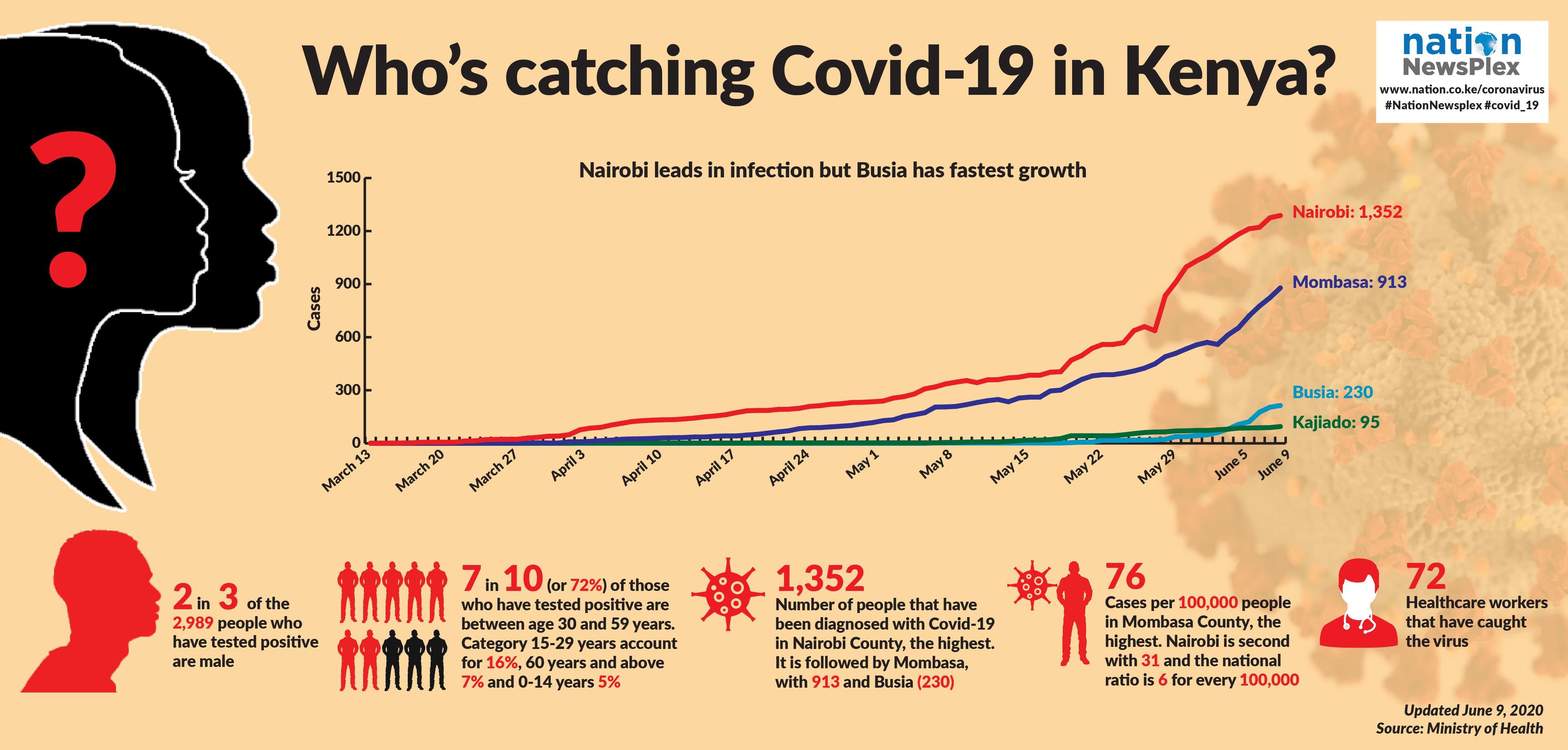Premium
Nairobi, Narok, Kakamega suffered most poll crimes in 2013

Voters in Kitui Central Constituency line up to cast their ballots at Central Primary School in Kitui County, on August 8, 2017. Kitui County reported the use of alcoholic drinks to disrupt campaigns. PHOTO | FRANCIS NDERITU
Nairobi County topped the country in polls-related crime in 2013.
In a study conducted by the National Crime Research Centre (NCRC) on polls-related crimes during the 2013 General elections, the country’s capital had a total of 73 reported cases.
Narok and Kakamega counties came close to Nairobi, with 67 and 65 cases respectively, on reported election crimes.
However, Nairobi is the only county which had unjustified use of national security organs, through police shootings and arrests besides other crimes. The data shows hate speech, fighting, evictions, rape and burglary were also committed within Nairobi County in the said period.
INVESTIGATIVE OFFICERS
Bomet which came third had 63 cases. Together with Narok, they led in offenses such as bribery, rigging of candidates during nominations, defacing of posters, destruction of property, murder, stealing property, assault, rape and character assassination
The two counties also had rampant offenses of provision of food, refreshments, fare reimbursements and rewards to supporters together with Kakamega, Mombasa and Isiolo.
Narok is also the only county which had reported cases of the use of weapons by opponents.
The study, whose findings are documented in the Judiciary’s 2015-2016 annual report, was conducted in 20 counties and recorded a total of 1,050 election crimes cases.
It was aimed at establishing prevalent election crimes, the perpetrators, factors contributing to such offenses and challenges faced in controlling them.
It also aimed at identifying how to control such crimes effectively, as well as exploring legislative reforms, empowering investigative officers and prosecutors, and conviction of offenders.
OFFICIALS COMPROMISED
Counties that had a majority of evictions are Mombasa, Isiolo and Uasin Gishu (Eldoret) besides Nairobi as well as Bomet.

Voters in Kitui Central Constituency line up to cast their ballots at Central Primary School in Kitui County, on August 8, 2017. Kitui County reported the use of alcoholic drinks to disrupt campaigns. PHOTO | FRANCIS NDERITU
Areas such as Kitui, Nakuru, Siaya, Bungoma and Mombasa had a majority of reported cases of giving alcoholic drinks to people to interrupt campaigns.
Nakuru, Migori, Siaya, Tana River, Narok had cases of election officials such as presiding officers and their deputies compromised.
Voter intimidation was highly experienced in Kericho, Migori, Isolo, Uasin Gishu (Eldoret) and Garissa.
Kirinyaga, Migori and Isiolo counties experienced the fewest poll-related crimes, with 40 cases in each county.
FAILURE TO PREFORM
“Election crimes in Kenya contravene the Elections Act and other provisions of the constitution hence contribute to the social, political as well as economic problems in society,” the report said.
By the end of August, the Director of Public Prosecution Keriako Tobiko said that his office had already initiated prosecution of 75 cases involving 85 individuals, following the August 8 polls.
According to the DPP, the cases involved 24 officials of the Independent Electoral and Boundaries Commission (IEBC) and 59 non-IEBC persons, including politicians or government officers.
17 of the cases involve bribery allegations, 19 involve the charge of failure to perform official duty and a single murder case.
The others include three cases of impersonation, 10 of possession of ballot papers while the remaining 20 are classified as other charges.
Before this year’s General elections were held, 105 prosecutors as well as judges and magistrates were trained on handling election related cases.





